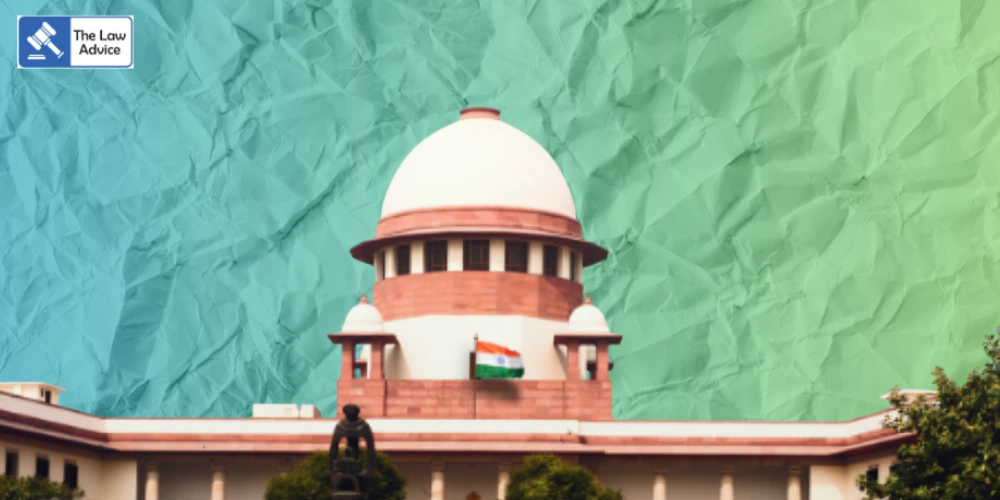
While the law grants concurrent jurisdiction to both Sessions Courts and High Courts to hear anticipatory bail applications, the Supreme Court-appointed amici curiae have opined that, as a rule, such pleas should first be filed before the Sessions Court.
Senior Advocate Siddharth Luthra and Advocate G Arudhra Rao, appointed as amici in the matter, suggested that High Courts should be approached directly only in exceptional or extraordinary circumstances. They clarified that though both courts possess concurrent powers under Section 438 CrPC (now Section 482 BNSS), Sessions Courts should be treated as the primary forum for such applications.
According to their report, individuals apprehending arrest may approach the High Court directly only in the following situations:
a) When the accused ordinarily resides outside the territorial jurisdiction of the concerned Sessions Court and fears arrest within that jurisdiction;
b) When circumstances within the Sessions Court’s jurisdiction—such as law and order breakdown, strikes, hostility, or threats to life or family—prevent effective recourse to that court;
c) When medical or other comparable emergencies make it impossible to approach the Sessions Court;
d) When the initial jurisdiction under Section 438 CrPC/482 BNSS lies with a Special or Designated Court of Sessions rank under a special or local law.
The report was filed before a Bench of Justice Vikram Nath and Justice Sandeep Mehta in Mohammed Rasal C. v. State of Kerala, where the Court had criticized the practice—especially prevalent in the Kerala High Court—of entertaining anticipatory bail pleas directly, bypassing the Sessions Court. In its earlier order (September 8), the Court had noted that applicants should ideally approach the Sessions Court first and had sought inputs from the High Court and amici curiae.
The amici’s report broadly echoed the Supreme Court’s stance and expressed disapproval of the Kerala High Court’s subsequent judgment in Venu Gopalakrishnan & Ors. v. State of Kerala & Anr. (September 11), which reiterated that the High Court can directly hear such pleas.
“In our view,” the report observed, “directions like those prevailing in Kerala may discourage Sessions Courts from granting anticipatory bail, despite being statutorily competent to do so.” It emphasized that both courts have concurrent powers, and restricting Sessions Courts’ authority would undermine access to justice.
Highlighting India’s geographic and judicial diversity, the amici stressed that accessibility should guide procedural preference: “Where Parliament has conferred concurrent powers, preference between courts must be assessed through the lens of enhancing access to justice.”
They cautioned, however, that the Supreme Court should avoid judicially narrowing concurrent jurisdiction, as that would amount to judicial legislation, prohibited by P. Ramachandra Rao v. State of Karnataka (2002) 4 SCC 578.
Instead, they advised that the Supreme Court issue guidelines encouraging applicants to approach Sessions Courts first, while preserving the High Courts’ discretion to intervene directly in rare situations.
“Our proposal aims to declare the primacy of Sessions Courts in anticipatory bail matters, while maintaining concurrent jurisdiction under Section 438 CrPC/482 BNSS. This balances legal structure with the constitutional value of Access to Justice,” the report stated.
Citing Satender Kumar Antil v. CBI (2022) and subsequent rulings, the amici underscored the need to strengthen the district judiciary, the citizen’s first contact with the justice system. Sessions Courts, they noted, are more accessible and less expensive than High Courts. The trend in states like Kerala, Odisha, and Andhra Pradesh, where High Courts often entertain anticipatory bail pleas first, has overburdened them and weakened faith in Sessions Courts.
Such practices, they warned, risk creating a perception that Sessions Courts are less competent to grant anticipatory bail, undermining judicial hierarchy. However, they opposed imposing a rigid, uniform rule, advocating instead for limited, justified exceptions.
Another practical benefit of approaching the Sessions Court first, the amici observed, is that it gives the applicant two opportunities—first before the Sessions Court and then before the High Court—while the High Court gains from the lower court’s reasoning.
The amici ultimately urged a balanced approach that retains concurrent powers but promotes judicial self-restraint by High Courts—similar to the principle of approaching High Courts before invoking Article 32.
Thus, the High Courts should ordinarily guide litigants toward the more accessible Sessions Courts but retain discretion to act directly in rare, exceptional cases.
“Our proposal respects the statutory design granting concurrent jurisdiction to both forums. High Courts should exercise restraint by directing litigants to the equally efficacious Sessions remedy while retaining the discretion to act in special cases,” the report concluded.
The amici also noted that various High Courts have delivered conflicting judgments on this procedural question. The Supreme Court took the report on record and scheduled the next hearing for November 12.
Case Title: Mohammed Rasal C & Anr. v. State of Kerala & Anr., SLP (Crl.) No. 6588/2025
Website designed, developed and maintained by webexy